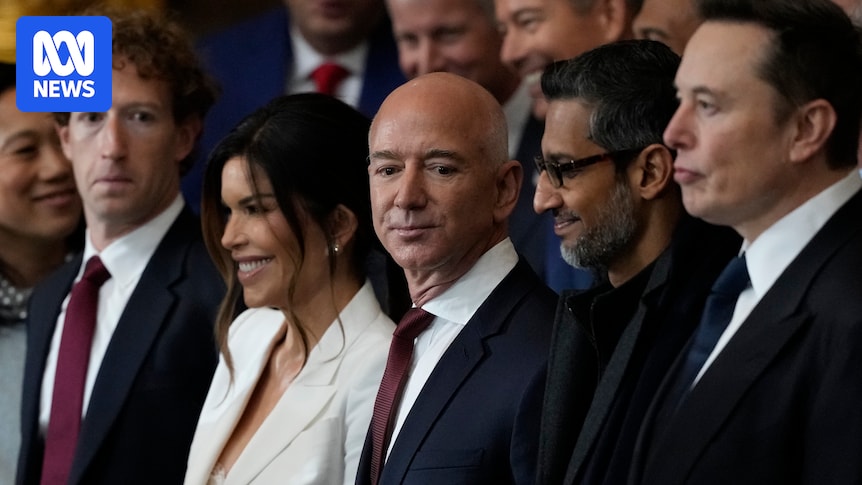
The world’s wealthiest individuals are poised to see their fortunes grow even further. Former President Donald Trump has orchestrated a highly profitable arrangement for his influential technology supporters, often dubbed the “broligarchs,” who played a significant role in his ascent to the White House. While global attention has largely been on tariffs and their potential economic impact, it is the issue of tax that has become central to Trump’s strategy of rewarding his most prominent backers.
In a recent development, the United States has decided to withdraw from the Organisation of Economic Co-operation and Development (OECD) initiative aimed at standardizing global corporate tax rates. This move, announced shortly after Trump’s inauguration, signals a significant shift in international tax policy, with profound implications for multinational corporations and global tax fairness.
The Global Tax Landscape: A Shift in Strategy
For nearly two decades, the OECD has been working diligently to ensure that multinational firms pay their fair share of taxes in the countries where they operate. This effort culminated in an agreement, endorsed by the Biden administration, requiring multinationals to pay a minimum tax rate of 15 percent. Australia, a key advocate of this initiative, formally enacted the proposal into law late last year.
However, this plan has now been upended. As part of a new agreement, the United States will abandon its proposed “retaliatory tax” on nations perceived as unfriendly to American corporations. In return, G7 nations and others are expected to forgo their plans to impose taxes on American multinationals.
Presidential Payback: A Reward for Tech Titans
The announcement of America’s withdrawal from the OECD initiative went largely unnoticed during Trump’s inauguration. However, the presence of tech magnates like Elon Musk, Jeff Bezos, Mark Zuckerberg, and Sundar Pichai at the event was a clear indication of their influence. These individuals, united by the goal of increasing their wealth, have seen Trump deliver substantial benefits within his first six months in office.
Multinational tax avoidance has long been a challenge, particularly in resource-rich countries like Australia. In recent years, major technology companies have refined this practice to an art form, using complex strategies to minimize their tax liabilities.
Decades of Tax Avoidance: A Historical Perspective
Historically, companies like Chevron have been emblematic of tax avoidance in Australia. In 2021, Chevron paid a mere $30 in taxes on $9.2 billion in revenue, despite reporting a financial loss. This led to a protracted legal battle with the Australian Tax Office, resulting in Chevron eventually paying significant taxes.
Tech giants have employed more sophisticated models, leveraging their global operations to shift profits to low-tax jurisdictions. For instance, Amazon reported over $1 billion in sales in Australia in 2018 but paid just $20 million in taxes, directing much of its revenue through Singapore.
Trump’s Tax Tactics: Coercion or Negotiation?
If Trump’s executive order was a boon for tech billionaires, the recent G7 agreement to abandon the 15 percent minimum tax has been an even greater windfall. Treasury Secretary Scott Bessent echoed Trump’s penchant for deals, announcing a joint understanding among G7 countries to protect American interests.
“After months of productive dialogue with other countries on the OECD Global Tax Deal, we will announce a joint understanding among G7 countries that defends American interests,” Bessent stated.
The agreement involved the U.S. dropping a clause from Trump’s “Big Beautiful Bill” that threatened increased taxes on companies from “discriminatory foreign countries.” This provision had caused concern among Australian super funds, which have significant investments in U.S. tech firms.
Averting a Financial Crisis: Implications for the Future
The potential for increased taxes on Australian investments in the U.S. posed a threat to retirement incomes. However, the agreement has averted a financial crisis, preventing a potential run on U.S. government bonds and a credit crunch.
While this development has temporarily stabilized the situation, it raises questions about America’s role as a moral leader in the global economy. The decision to prioritize domestic interests over international tax fairness could have long-term implications for global economic relations.
As the dust settles, the focus will shift to how other nations respond to this shift in U.S. tax policy and whether new international agreements can be forged to address the challenges of multinational tax avoidance. The coming months will be crucial in determining the future landscape of global corporate taxation.





